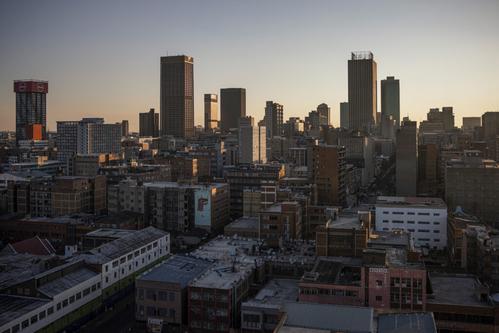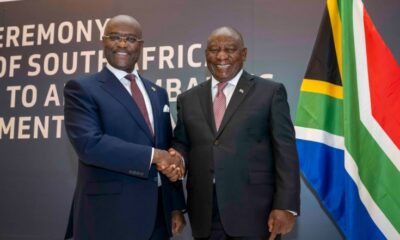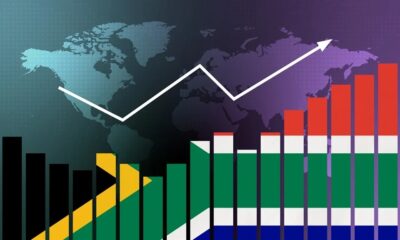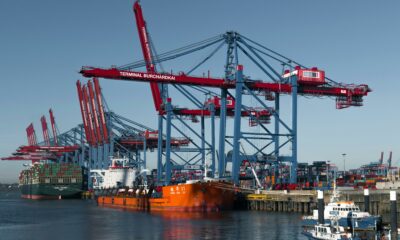Business
South African Business Confidence Takes a Knock as Manufacturing Slumps in April

South Africa’s business outlook dimmed further in April, with manufacturing sentiment sinking under the weight of global trade tensions and ongoing political uncertainty at home.
Absa Group’s Purchasing Managers’ Index (PMI), a key barometer of manufacturing sector health compiled by the Bureau for Economic Research, dropped sharply to 44.7 in April. That’s down from 48.7 in March, marking the sixth consecutive month in contractionary territory — a level below 50 points signals shrinking activity.
The decline paints a worrying picture. Several sub-indexes also deteriorated, with new sales orders plunging by 12.8 points to just 36.1, and the business activity index falling 8.3 points to 40. Employment remains sluggish too, with that index sitting at 42.9 — its 13th straight month in the red.
More troubling is that business sentiment for the near future is fading fast. The sub-index tracking expected business conditions in six months’ time dropped 9.4 points to 48.6, falling below the 50-point threshold for the first time since November 2023.
“Respondents turned decidedly more negative,” Absa noted in its report. The shift in sentiment reflects a convergence of local and international pressures.
Globally, South African businesses are feeling the chill from President Donald Trump’s reignited trade war, which has sparked uncertainty around tariffs and dampened demand for exports.
Locally, political wrangling around tax policy has further unsettled confidence. A proposed increase in value-added tax (VAT) briefly threatened to unravel the fragile government of national unity (GNU) established after last year’s elections. Although the measure has now been shelved — thanks in part to legal action from the Democratic Alliance — the episode dented hopes for a stable, business-friendly policy environment.
In response, Finance Minister Enoch Godongwana will present a revised budget on 21 May 2025, after Treasury scrapped the VAT hike plans. Business leaders and investors will be watching closely for signs of renewed fiscal discipline and economic stimulus.
Despite a recent cut in fuel prices, cost pressures remain high. The purchasing price index climbed 3.8 points to 68.3, suggesting input costs are still on the rise and squeezing margins.
With no clear turnaround in sight, South African manufacturers — and the economy more broadly — face a tough road ahead.
{Source: Business Tech}
Follow Joburg ETC on Facebook, Twitter , TikTok and Instagram
For more News in Johannesburg, visit joburgetc.com


























